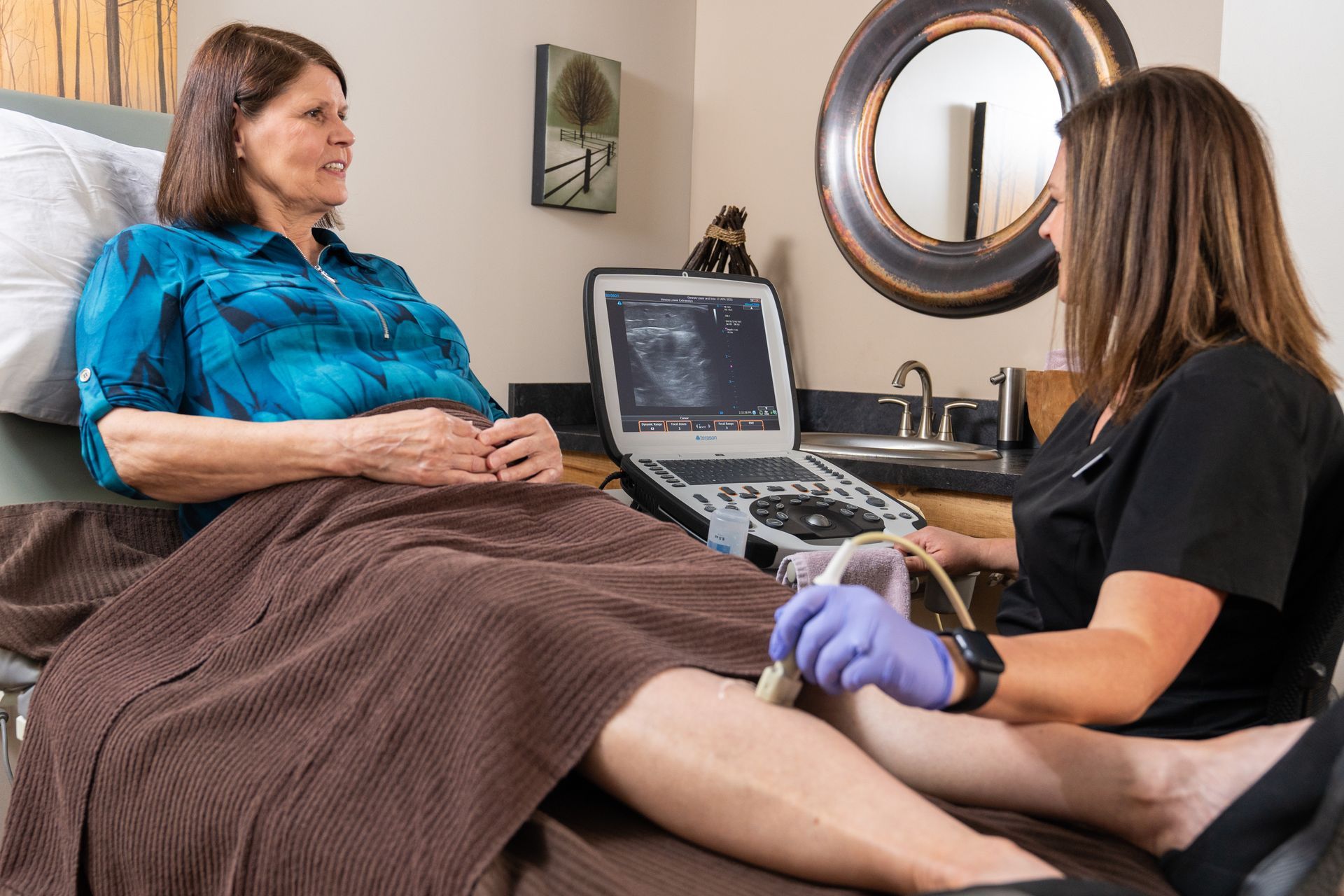Venous Ultrasound
Venous Ultrasound
Venous ultrasound is a cutting-edge diagnostic tool that utilizes sound waves to create detailed images of the veins within the body. This non-invasive procedure is commonly employed to detect blood clots, particularly in the leg veins, a condition known as deep vein thrombosis.
With no use of ionizing radiation and no known harmful effects, venous ultrasound offers a safe and effective means to diagnose and assess venous conditions. Explore further to understand how this technology can be a vital part of your vein care journey.

Venous Ultrasound Frequently Asked Questions
-
What is a venous ultrasound?
A venous ultrasound is a diagnostic test that does not use radiation. Instead, ultrasound uses what we call “sound waves” to see the veins in your body. Venous ultrasound specifically looks at the veins and how well they are bringing blood back to the heart.
-
Why did my doctor order a venous ultrasound?
There are 2 reasons doctors will order a venous ultrasound. The first reason could just be to check for blood clots. Ultrasound can see whether a vein is open or clotted. The second reason is to check the direction of the blood flow. Venous ultrasound is used to see if blood in the veins is flowing in the correct direction (toward the heart) or if there is back flow occurring (back down toward the ankles).
The results of these tests will be used to determine if a patient needs to be treated for a blood clot and/or vein disease. Treatment options will vary depending on where a blood clot is located and how new the clot appears. Vein disease treatment will differ depending on which veins are involved, how large the veins are, and what treatment options insurance companies allow to be covered.
-
How do I prepare for my Ultrasound?
We ask that you drink at least 32 ounces of water within 2 hours of your ultrasound. The reason for this is that it helps dilate the veins and will make the results more accurate. Do not drink any caffeine before your exam. The reason for this is caffeine will cause your veins to narrow making them harder to see with ultrasound. Also, do not wear your compression stockings for at least 48 hours before your exam. We suggest eating some salty foods before because salt helps to retain water inside the veins.
-
What can I expect during the ultrasound?
We start scanning in the groin and work our way down to your ankle checking all veins. So, we will ask that you undress from the waist down. There will be a towel to cover up during the exam. There is ultrasonic gel used on the skin during the exam and it will be warm! It is water-based and does not stain clothes. The gel will be wiped off at the end of the scan. The ultrasound technician will be applying some pressure on the legs during the test to see if the veins are open. The technician will also be squeezing the leg during the scan. You will be laying on a table that is tilted downward to put you in a position that makes you feel like you are standing. If we are having a hard time with the veins being large enough to see, then you may have portions of the exam where you will have to stand.
-
How long will the ultrasound last?
You should expect to be scanned for 1 hour as a new patient. Follow-up scans after treatment can go faster than an hour, but not always. If we are just scanning to rule out blood clots, the maximum time it could take is 30 minutes.
-
How will I receive my results?
One of our clinic nurses will call you with results once your doctor reads the ultrasound. They will explain what was found and how to proceed. You should not expect to know your results the day of your ultrasound.
Concerned about your vein health or experiencing symptoms?
Schedule a personalized Venous Ultrasound with our expert team at Genesis Vein Center today for a comprehensive assessment and tailored treatments.

